Epsom salt is a fertilizer well established as a gardening staple. Knowing this, you might wonder which Epsom salt products are best for plants. This post uses up-to-date research to gather and review the top Epsom salts for plants to make your purchasing decision an easy one.
Unlike many types of fertilizer, the name Epsom salts refer to a very specific chemical compound. Therefore, most Epsom Salt products are nearly identical in chemical makeup. However, the following types of Epsom Salt products are best for plants:
- Gardeners' Epsom Salts
- Bulk Epsom Salts
- Organic Epsom Salts
Keep reading the rest of this post for more details on the above types of Epsom salt products. We follow this discussion with a quick review of what Epsom salts are and what benefit they give to plants and gardens. To conclude, we answer several questions related to Epsom salts and gardening.
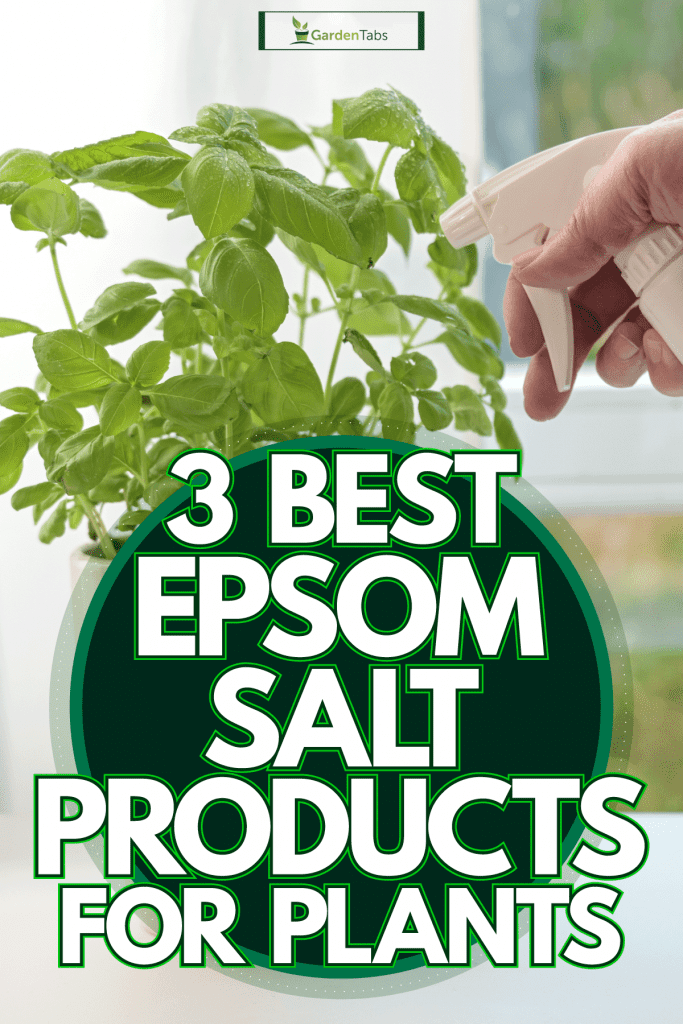
3 Best Epsom Salt Products For Plants
This section will review the three best Epsom salt products for plants.
Gardeners' Epsom Salts
Generally, the best option for Epsom salts for gardening are products sold for outdoor and plant health purposes. When you shop for Epsom salts, you find that many of the products on the market are instead sold as beauty products and bath salts.
While the essential makeup of these bath and beauty Epsom salts are the same as gardeners Epsom, the cosmetic Epsom salts often include additives. These additives, which smell nice, may be harmful to plants.
Click here for gardens Epsom Salts from Amazon.
Instead, shop for Epsom salts that are specifically sold for gardening purposes. These products generally include only pure Epsom salt and have a far lower chance of containing harmful chemicals.
Bulk Epsom Salts
Epsom salts are sold in many different package sizes. In terms of affordability, bulk Epsom salt packages are a great choice. Therefore, if you want to add magnesium to a new garden or landscape project or anticipate the need for magnesium fertilizer for years to come, bulk Epsom salts are the only way to go.
Click here for 18-pounds of Epsom salt from Amazon.
Take note, Epsom salts will lose some of their usability if they become damp over time. This means that if you do not have a dry place to store your bulk Epsom salt, it may dissolve away before you get to use all of the product.
As with smaller packages of Epsom salt, be sure that you only use pure bulk Epsom salt or bulk Epsom salt designed for gardening or agricultural purposes.
Organic Epsom Salts
Organic Epsom salts top the list of recommended Epsom salts products for plants because you can trust that no unhealthy or unwanted chemicals are included in the salt. Generally, for a product to be considered organic, it must undergo thorough government oversite and regulation. Also, make sure the organic Epsom salts are designed for plant purposes.
Click here for organic Epsom salts from Amazon.
While some products may be labeled as 'natural' or 'green,' only Organic Materials Review Institute (OMRI) reviewed, and certified products can officially be labeled 'organic.' The Epsom salts linked above are from a very well-established and trusted fertilizer company named Monterey.
What are Epsom salts?
Epsom salts are chemically known as Magnesium Sulfate. They have a chemical compound of MgSO4. The compound's structure is similar to table salt and has some water suspended within the salt lattice.
Epsom salts get their name from their discovery near Epsom, England, as a naturally occurring mineral. Today, Epsom salts for plants are sold as granular white salt products that can be sprinkled on the ground or dissolved into the water.
The over-the-counter products sold as Epsom salts for plants are all very similar and contain about 10-percent magnesium and 13-percent sulfur. When dissolved in water, spread onto the soil, or mixed into the dirt, the elements of Epsom salts are made available to plants as fertilizer.
How do Epsom salts help plants?
According to the University of Washington, Epsom salts are most applicable as a magnesium fertilizer. This contradicts many widely toted but poorly supported claims of Epsom salts being useful as a pesticide, acidification agent, and sulfur fertilizer.
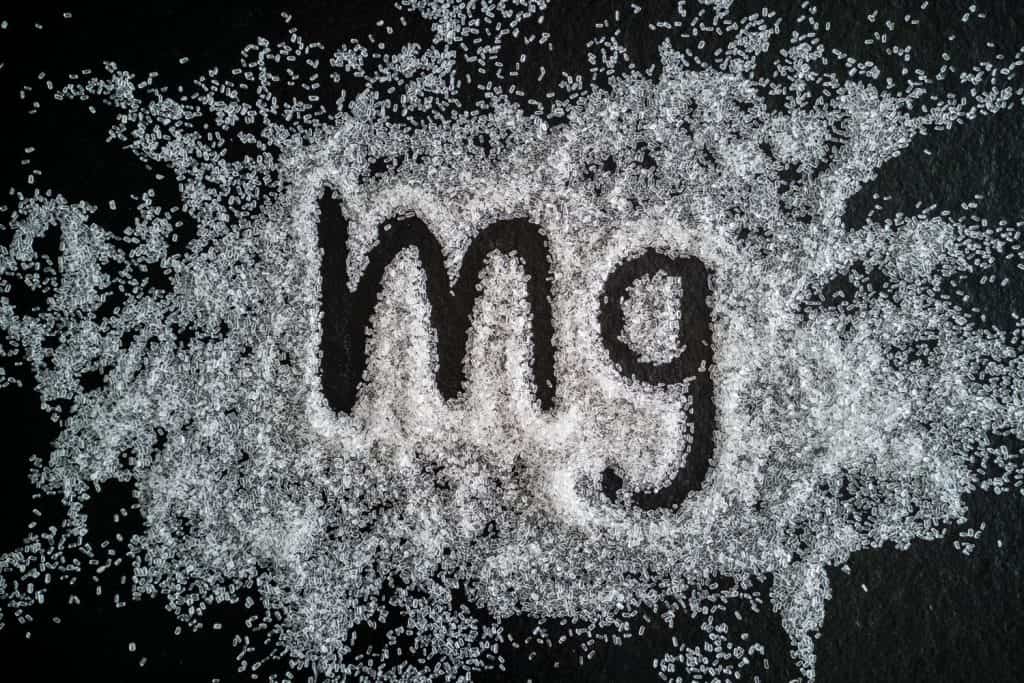
Flowering plants and fruiting plants [like tomatoes and roses] are the most common to have magnesium deficiencies. To determine if magnesium is needed in your soil, perform a soil test through your local extension office or possibly through a local nursery or gardening center.
It is challenging to tell if your plant suffers from a magnesium deficiency from visual inspection alone. This is because magnesium helps your plant uptake many other nutrients, such as phosphorus. Thus, a magnesium deficiency may manifest as some other deficiency type.
While the claims of Epsom salt as a pesticide are dubious, it is common gardening knowledge that a plant is much more able to combat pests and diseases if it gets all the fertilizer it needs. Therefore, giving your magnesium-hungry plant Epsom salts may also solve your pest or disease issue.
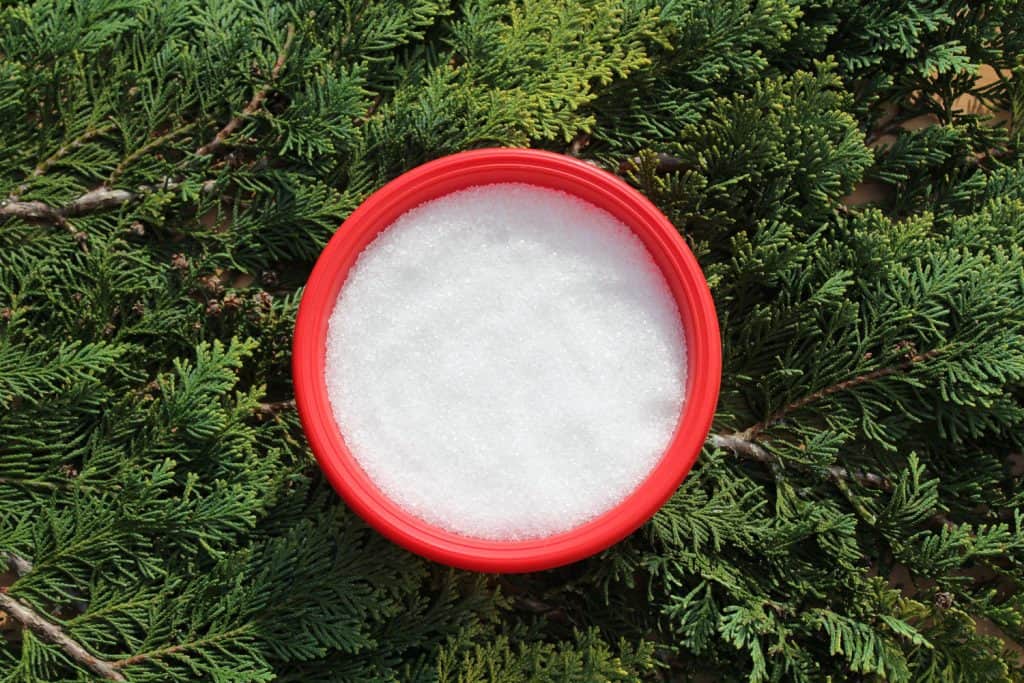
Generally, you can add Epsom salts as you build the soil for a new garden or landscape or existing growth if you notice magnesium deficiency. Whichever of these times you choose, make sure to thoroughly research your intended Epsom salt use because many recommended uses are unfounded.
What will too much Epsom salt do to plants?
Too much Epsom salt may cause nutrient lock or burn the leaves of plants. Nutrient lock occurs when the soil has too much fertilizer. When this happens, all of the chemically active fertilizer elements end up binding together with water in the soil to make compounds that the plant cannot break down.
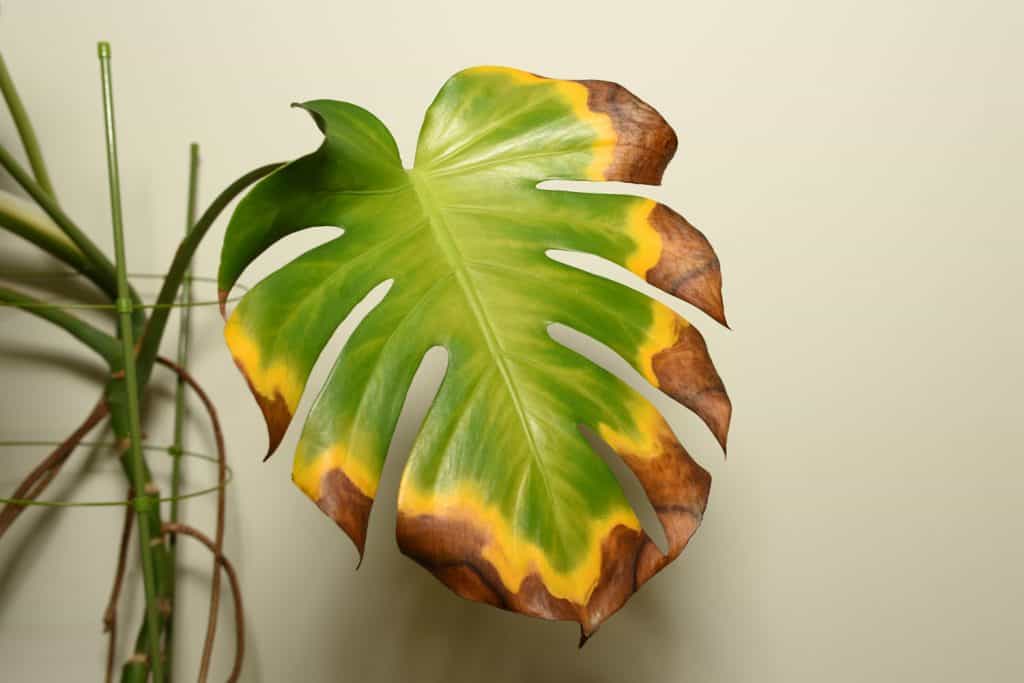
Therefore, too much Epsom salt in the soil can lead to a plant becoming sick from a lack of nutrients. Further, the magnesium in Epsom salts has very similar chemical properties to calcium. Because of this, magnesium can compete with calcium in the soil and lead to calcium deficiency.
Finally, Epsom salt is often applied to plants as a foliar spray. If applied too heavily, the spray will burn the leaves. This presents as crispy leaves or leaves with off-colored spots.
How do you use Epsom salts in a potted plant?
Generally, applying Epsom salts to potted plants is the same as using Epsom salts to gardens or landscaping. Follow the directions on the garden-specific Epsom salt packaging.
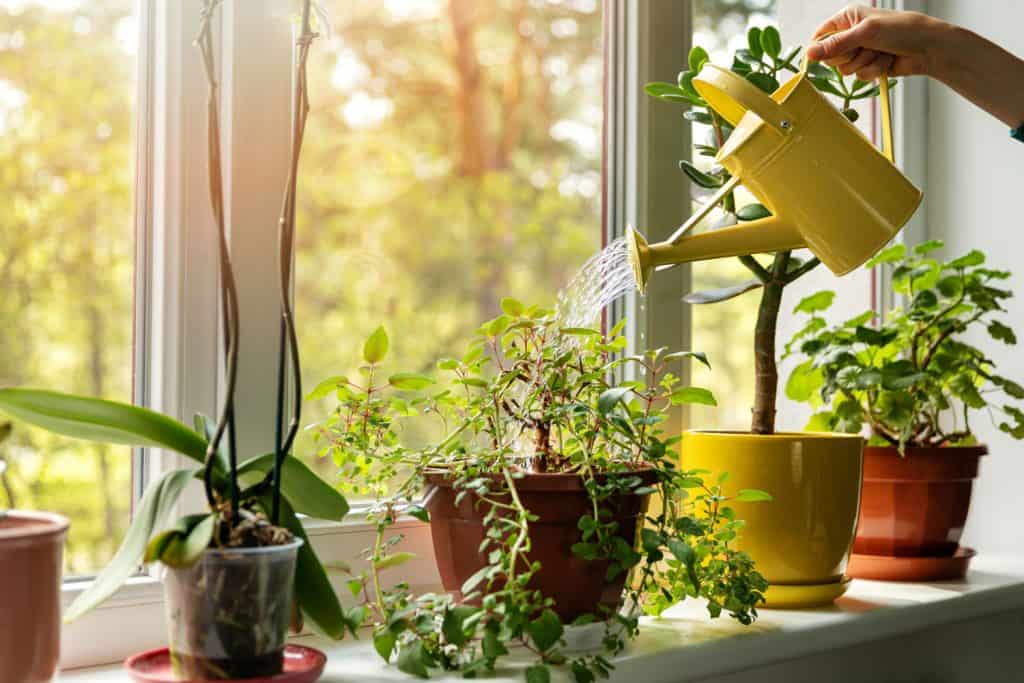
Usually, the direction is to dissolve around one teaspoon to 1 tablespoon of Epsom salt into one gallon of water. Then, use that water to keep your plant watered until you run out. This will gently provide your potted plant with the magnesium fertilizer that it needs.
Can you put Epsom salt directly on plants?
It is commonly recommended to spray Epsom salt dissolved in water directly on plants as a foliar spray. This is a way to bypass the root uptake of nutrients and get the fertilizer directly into the leaf.
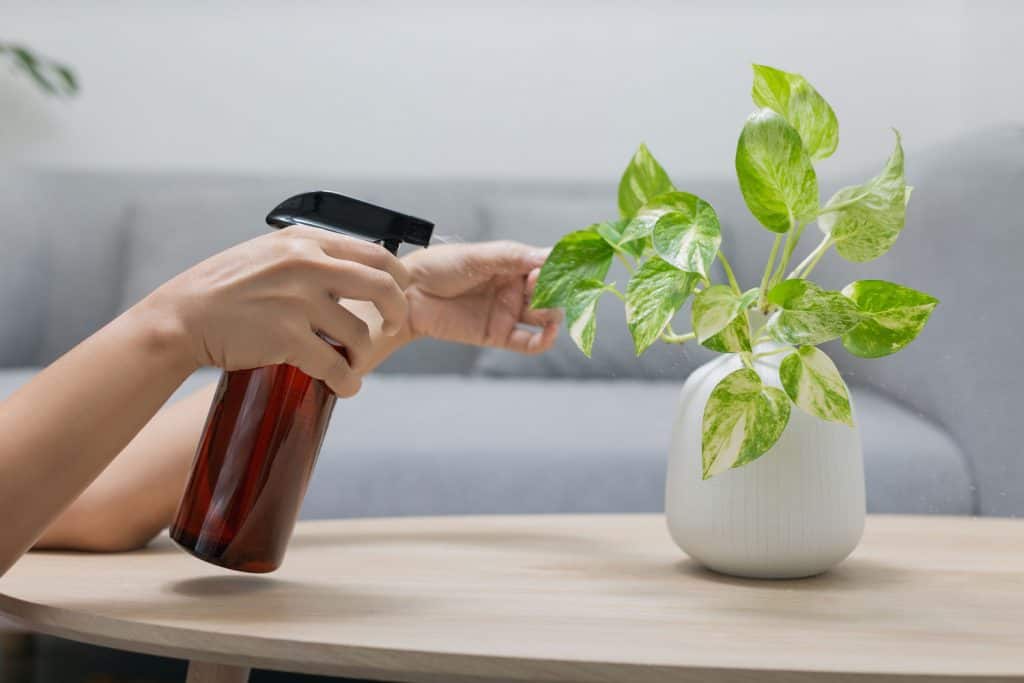
When applying foliar sprays, it is recommended that you apply a mixture on the weak end of the recommended dose. This is because it is easier to overfertilize and 'burn' leaves using a foliar spray than when you fertilize the soil around a plant.
Can you mix Epsom salt with Miracle-Gro?
While it is possible to mix Epsom salt with Miracle-Gro, Miracle-Gro is already a good source of magnesium. Therefore, mixing Epsom salts and Miracle-Gro likely overdoes it in terms of magnesium fertilizer.
Click here for Miracle-Gro from Amazon.
An alternative to mixing Epsom salt with Miracle-Gro is to spread out the application of these two fertilizers. First, fertilize with just Miracle-Gro, and then, if you still have a magnesium deficiency, you can add Epsom Salts.
How do you choose Epsom salt?
As discussed above, Epsom salt refers to a particular mineral with a very specific chemical compound. This means that almost all Epsom salts are the same, unlike other fertilizers. Therefore, as long as you choose an Epsom salt designed for gardening and agricultural purposes, you should be good.
Additional Reading
To learn more about garden fertilizers, read these great articles from Garden Seer:
- Can You Dissolve Fertilizer In Water? Should You?
- How Long Does Fertilizer Last In Soil?
- Does Fertilizer Stain Concrete? How Do You Clean It Up?
In Closing
This post provided a list of the three best types of Epsom salts for plants. We also cover what Epsom salt is and how to use it in your garden or landscaping. To conclude, we answer several questions related to the topic of this post. Good luck!




